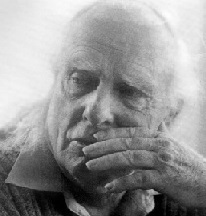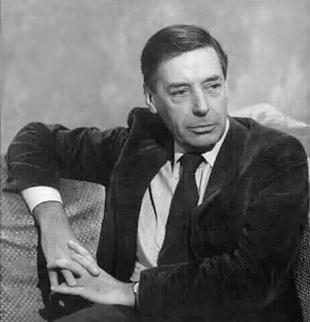Related Research Articles

Baruch (de) Spinoza was a Dutch philosopher of Portuguese-Jewish origin, born in Amsterdam, and then mostly known under the Latinized pen name Benedictus de Spinoza. One of the foremost exponents of 17th-century Rationalism and one of the early and seminal thinkers of the Enlightenment and modern biblical criticism including modern conceptions of the self and the universe, he came to be considered "one of the most important philosophers—and certainly the most radical—of the early modern period." Inspired by Stoicism, Jewish Rationalism, Machiavelli, Hobbes, Descartes, and a variety of heterodox religious thinkers of his day, Spinoza became a leading philosophical figure of the Dutch Golden Age.

Richard Errett Smalley was an American chemist who was the Gene and Norman Hackerman Professor of Chemistry, Physics, and Astronomy at Rice University. In 1996, along with Robert Curl, also a professor of chemistry at Rice, and Harold Kroto, a professor at the University of Sussex, he was awarded the Nobel Prize in Chemistry for the discovery of a new form of carbon, buckminsterfullerene, also known as buckyballs. He was an advocate of nanotechnology and its applications.

Thomas Hobbes was an English philosopher. Hobbes is best known for his 1651 book Leviathan, in which he expounds an influential formulation of social contract theory. In addition to political philosophy, Hobbes contributed to a diverse array of other fields, including history, jurisprudence, geometry, theology, and ethics, as well as philosophy in general. He is considered to be one of the founders of modern political philosophy.

Hermann Klaus Hugo Weyl, was a German mathematician, theoretical physicist and philosopher. Although much of his working life was spent in Zürich, Switzerland, and then Princeton, New Jersey, he is associated with the University of Göttingen tradition of mathematics, represented by Carl Friedrich Gauss, David Hilbert and Hermann Minkowski.

Richard McKay Rorty was an American philosopher. Educated at the University of Chicago and Yale University, he had strong interests and training in both the history of philosophy and in contemporary analytic philosophy. Rorty had a long and diverse academic career, including positions as Stuart Professor of Philosophy at Princeton University, Kenan Professor of Humanities at the University of Virginia, and Professor of Comparative literature at Stanford University. Among his most influential books are Philosophy and the Mirror of Nature (1979), Consequences of Pragmatism (1982), and Contingency, Irony, and Solidarity (1989).

Herbert Paul Grice, usually publishing under the name H. P. Grice, H. Paul Grice, or Paul Grice, was a British philosopher of language. He is best known for his theory of implicature and the cooperative principle, which became foundational concepts in the linguistic field of pragmatics. His work on meaning has also influenced the philosophical study of semantics.

Fredrick Lawrence Grandy is an American actor who played "Gopher" on the sitcom The Love Boat and who later became a member of the United States House of Representatives from the state of Iowa. Grandy was most recently the host of The Grandy Group, a morning drive time radio talk show on 630 WMAL in Washington, D.C.

Sir Bernard Arthur Owen Williams, FBA was an English moral philosopher. His publications include Problems of the Self (1973), Ethics and the Limits of Philosophy (1985), Shame and Necessity (1993), and Truth and Truthfulness (2002). He was knighted in 1999.

Wilhelm Dilthey was a German historian, psychologist, sociologist, and hermeneutic philosopher, who held G. W. F. Hegel's Chair in Philosophy at the University of Berlin. As a polymathic philosopher, working in a modern research university, Dilthey's research interests revolved around questions of scientific methodology, historical evidence and history's status as a science. He could be considered an empiricist, in contrast to the idealism prevalent in Germany at the time, but his account of what constitutes the empirical and experiential differs from British empiricism and positivism in its central epistemological and ontological assumptions, which are drawn from German literary and philosophical traditions.
Scott Soames is an American philosopher. He is a professor of philosophy at the University of Southern California, and before that at Princeton University. He specializes in the philosophy of language and the history of analytic philosophy. He is well known for defending and expanding on the program in the philosophy of language started by Saul Kripke as well as being a major critic of two-dimensionalist theories of meaning.

Walter Arnold Kaufmann was a German-American philosopher, translator, and poet. A prolific author, he wrote extensively on a broad range of subjects, such as authenticity and death, moral philosophy and existentialism, theism and atheism, Christianity and Judaism, as well as philosophy and literature. He served more than 30 years as a professor at Princeton University.

Roger Atkinson Pryor was a Virginian newspaper editor and politician who became known for his fiery oratory in favor of secession; he was elected both to national and Confederate office, and served as a general for the Confederate Army during the American Civil War. In 1865 he moved to New York City to remake his life, and in 1868 brought up his family. He was among a number of influential southerners in the North who became known as "Confederate carpetbaggers."
Gilbert Harman was an American philosopher, who taught at Princeton University from 1963 until his retirement in 2017. He has published widely in philosophy of language, cognitive science, philosophy of mind, ethics, moral psychology, epistemology, statistical learning theory, and metaphysics. He and George Miller co-directed the Princeton University Cognitive Science Laboratory. Harman has taught or co-taught courses in Electrical Engineering, Computer Science, Psychology, Philosophy, and Linguistics.
The Jesse H. Jones Graduate School of Business is the graduate business school of Rice University, a private research university in Houston, Texas. Named in honor of Jesse Holman Jones, a Houston business and civic leader, the school received its initial funding in 1974 through a major gift from the Houston Endowment Inc., a philanthropic foundation established by Jones and his wife, Mary Gibbs Jones. The schools offers the Master of Business Administration (MBA), Master of Accounting (MAcc), and Doctorate in Philosophy (PhD) degrees. In addition, the school offers several joint degree programs, including the MD/MBA with Baylor College of Medicine, MBA/ME with Rice’s George R. Brown School of Engineering, and MBA/MS with Rice’s Wiess School of Natural Sciences. The school also provides an undergraduate business minor, executive education, and certificates.
Sergio Verdú is a former professor of electrical engineering and specialist in information theory. Until September 22, 2018, he was the Eugene Higgins Professor of Electrical Engineering at Princeton University, where he taught and conducted research on information theory in the Information Sciences and Systems Group. He was also affiliated with the program in Applied and Computational Mathematics. He was dismissed from the faculty following a university investigation of alleged sexual misconduct.
In philosophy and rhetoric, the principle of humanity states that when interpreting another speaker we must assume that his or her beliefs and desires are connected to each other and to reality in some way, and attribute to him or her "the propositional attitudes one supposes one would have oneself in those circumstances". The principle of humanity was named by Richard Grandy who first expressed it in 1973.
Jay Frank Rosenberg was an American philosopher and historian of philosophy. He spent his teaching career at the University of North Carolina at Chapel Hill, where he joined the Department of Philosophy in 1966 and was appointed Taylor Grandy Professor of Philosophy in 1987. Rosenberg was a student of Wilfrid Sellars and established his reputation with ten books and over 80 articles in metaphysics, epistemology, the philosophy of language, and the history of philosophy. His most commercially successful work, The Practice of Philosophy: A Handbook for Beginners, is a standard text in introductory philosophy courses, and has been translated into German.
Baruch A. Brody was an American bioethicist. He was the Leon Jaworski Professor of biomedical ethics and former Director of the Center for Ethics, Medicine and Public Issues at The Baylor College of Medicine and Andrew Mellow professor of Humanities in the Department of Philosophy at Rice University.
Charles Brendan Grandy is an American stand-up comedian, television writer and producer. He began his career on the television series The Daily Show with Jon Stewart, Saturday Night Live, The Office, and Guys With Kids. Grandy has had a string of collaborations with actress and producer Mindy Kaling through The Mindy Project, Champions, and Four Weddings and a Funeral. He is the son of former Love Boat star turned politician Fred Grandy.

Moses Grandy was an African-American author, abolitionist, and, for more than the first four decades of his life, an enslaved person. At eight years of age he became the property of his white playmate, James Grandy, and two years later he was hired out for work. The monies Moses earned were collected and held until James Grandy turned 21. Moses helped build the Great Dismal Swamp Canal and learned how to navigate boats. It was that skill that led him to be made commander of several boats that traveled the canal and Pasquotank River, transporting merchandise from Elizabeth City, North Carolina, to Norfolk, Virginia. The position allowed him to be better fed, shod, and dressed. Able to keep a portion of his earnings, Moses arranged to buy his freedom twice and twice his owners kept the money and held him in slavery. An arrangement was made for an honorable man to buy him and Grandy earned the money to buy his freedom a third time, this time successfully.
References
- ↑ "Philosophy Faculty at Rice - Richard Grandy".
- ↑ Daniel Dennett, "Mid-Term Examination," in The Intentional Stance, 1989, p. 343